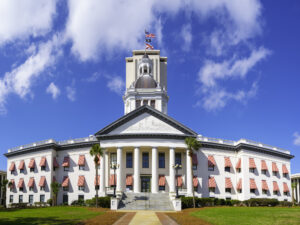
Navigating Florida’s 2024 EV Legislation: Opportunities for the Sunshine State
By EC Policy Manager Celia Kosinski Florida’s electric vehicle (EV) market stands out as a beacon of progress, leading the Southeast and ranking second in

By EC Policy Manager Celia Kosinski Florida’s electric vehicle (EV) market stands out as a beacon of progress, leading the Southeast and ranking second in

You’ve likely seen the news that Hertz is selling off 20,000 Tesla vehicles (around 1/3 of their EV stock).
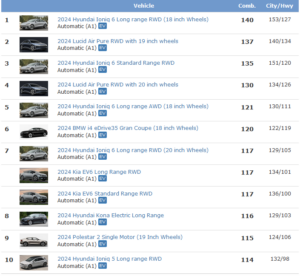
By EC Technical Programs Associate Steph Wagner New year, new car? If you’re starting off 2024 with the search for a new vehicle, there’s no

Rural communities, especially in the Southeast, can be at the forefront of the EV transition, but not without intentional leadership. It takes coordination, planning, and problem solving outside of traditional operational silos, but the benefits can be significant.

As we transition to a fully electric future, technological advancements will evolve, resulting in advanced, more efficient battery technologies. Increasing the efficiency of batteries is vital, not just for electric vehicles, but for the future of technology as a whole.

This Tool Library contains tools, reports, and webinars that can help applicants and advocates identify, apply for, and deploy federal funding. Topics covered include finding regions needing charging infrastructure, ensuring that projects are equitable, calculating the total cost of ownership of vehicles, and more.
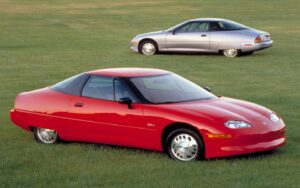
By EC Policy Intern Zane DeVitre-Shalauta Last year, electric vehicles (EVs) hit the technology “tipping point.” Market-wide adoption of EVs reached 5%, a generally accepted

By EC Communications Intern Amara Alexander With the rising fuel costs and the desire to combat climate change, the electric vehicle (EV) moment is now.
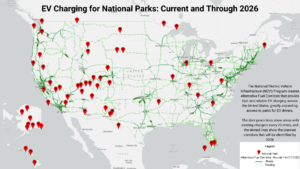
By EC Policy Manager Emma Heins The Electrification Coalition (EC) aims to achieve mass adoption of electric vehicles (EVs) to protect U.S. national security and
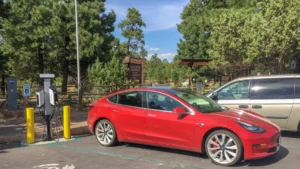
Elevated engagement and prioritization from the public and private sectors around transportation electrification will ensure the protection of America’s natural treasures from the impacts of

By EC Director of Technical Services Matt Stephens-Rich With the heightened focus on rural EV charging networks following the announcement of the $2.5 billion Charging

By Panasonic NextLab Head of Strategy Courtney Ehrlichman At Panasonic Smart Mobility Office (SMO), our focus on the electric fleet market is centered on solutions
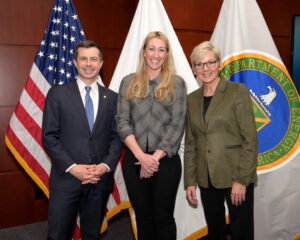
EC VP of Policy Katherine Stainken with secretaries Buttigieg and Granholm at the CFI program announcement The Electrification Coalition (EC) is ready to help you

By Caroline Draughon and Jaclyn Lea, Policy Interns With rising gas prices as a result of our exposure to a volatile, cartel-controlled commodity, national security
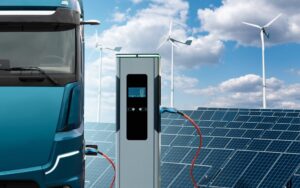
Guest post by Courtney Ehrlichman, Head of Strategy, Panasonic Smart Mobility Office

The IRA, the Infrastructure Investment and Jobs Act (IIJA), and the CHIPS Act covered many energy, transportation, infrastructure, and supply chain challenges. Throughout this legislative session, our staff helped advance and shape these critical policies to reduce our dependence on oil while accelerating the shift towards electrified transportation built in the U.S. and allied countries.

Editor’s Note: This is a guest blog post from Todd Mouw, president of ROUSH CleanTech, a partner in the Electrification Coalition Business Council. E-mobility can
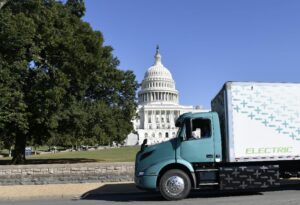
The Electrification Coalition held a series of webinars in March 2022 to share the latest info on new federal funding programs for EVs and charging
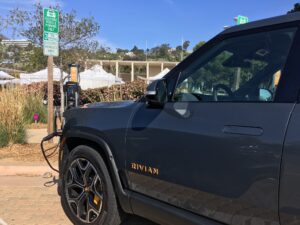
The Federal Highway Administration (FHWA) issued program guidance on Feb. 10 for the National Electric Vehicle Infrastructure (NEVI) Formula Program. These are the top eight takeaways for states and other stakeholders.

Electric vehicles offer many benefits for rural communities, including economic development opportunities, financial savings for consumers and fleets, reduced emissions, and freedom from volatile global oil markets.

We hosted a policy boot camp on the opportunities for widespread deployment of electric trucks and buses throughout Virginia. Presenters provided insights on national security benefits, emissions reductions, cost savings, vehicle technology and more.
August 3, 2021 Run On Less-Electric to Provide Critical Insights for Freight Electrification The Electrification Coalition (EC) Is excited to work with the North American
By Celia Kosinski and George Moss Electric vehicles (EVs) have come a long way since their comeback in the 1990’s, with ongoing improvements to technology
July 8, 2021 Electrification Coalition Announces World EV Day Partnership The Electrification Coalition is proud to announce that we are 2021 Partners of World EV
The United States is the world’s largest consumer of petroleum, accounting for one-fifth of global daily supply. Oil accounts for over 90% of energy use
The Problem The United States is the world’s largest consumer of petroleum, accounting for one-fifth of global daily supply. Oil accounts for over 90% of
Academic supporters include a Nobel Laureate and seven former chief economists of the Federal Trade Commission and Department of Justice LOS ANGELES—A growing coalition
EC Offers Webinar on FTA Low or No Emission Vehicle Program March 2, 2021 If your organization operates a public transit system, your fleet electrification

ECBC Partner Spotlight General Motors Aspires to Eliminate Tailpipe Emissions from New Light-Duty Vehicles by 2035 GM, an Electrification Coalition Business Council (ECBC) partner, announced

The EC is proud to announce a new partnership with Nestlé to support the company’s pilot freight electrification plan, beginning with the deployment of electric trucks on a 20-mile short-haul route in Ohio that will serve as a critical public-private pilot program to accelerate electrified freight at scale.
© 2024 ELECTRIFICATION COALITION
Subscribe to our newsletter to receive information about projects, policy developments, electrification news, market insights, and more.
Amy Malaki is the Director of Partnerships and Policy at SkyNRG and SkyNRG Americas, pioneering global leaders in sustainable aviation fuel production and supply. Prior to SkyNRG, Amy was the Associate Director for the transportation portfolio at the ClimateWorks Foundation where she developed philanthropic investment strategies to advance a sustainable, equitable and low-carbon mobility system. She also pioneered the organization’s international aviation decarbonization strategy. Prior to that she focused on Asia business development at Better Place, a Silicon Valley electric vehicle network startup. She has a B.A. in Chinese and China studies from the University of Washington and an M.A. in international policy studies (energy and environment) from Stanford University.